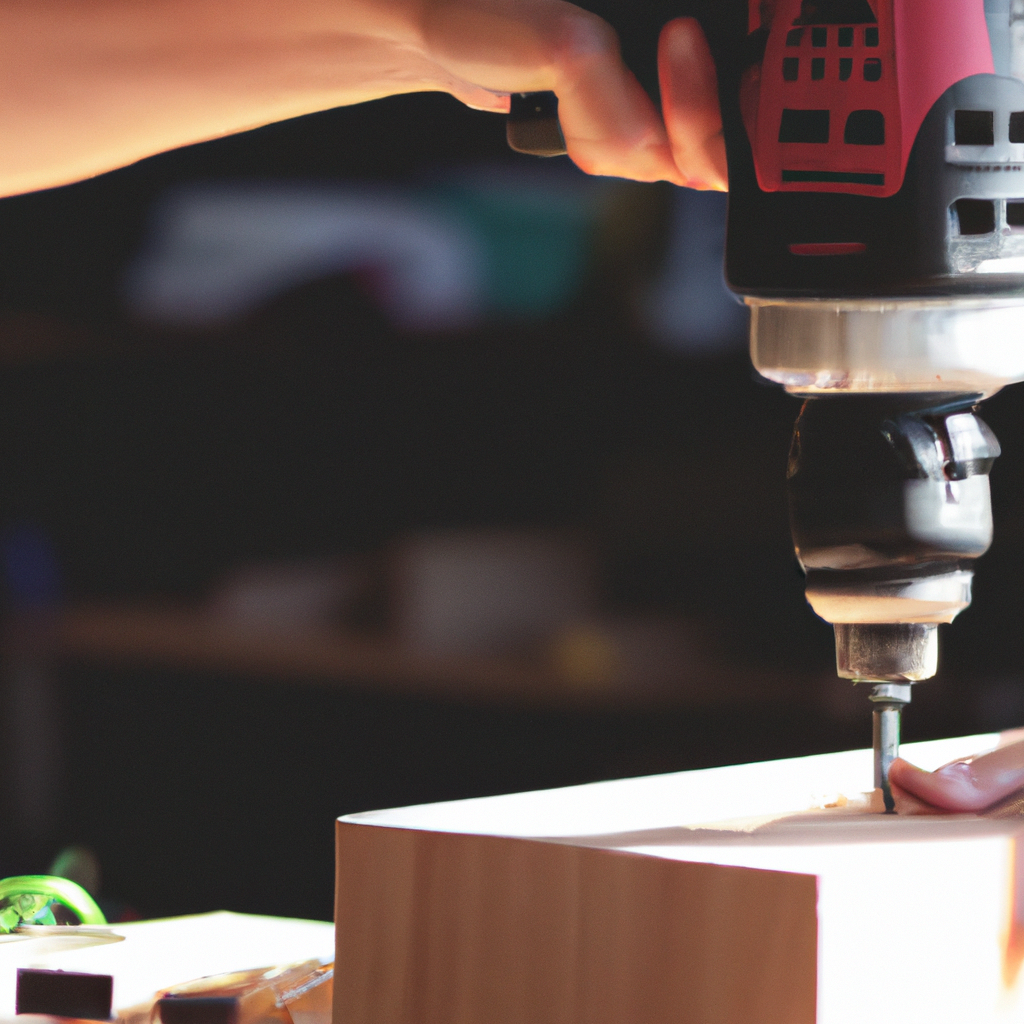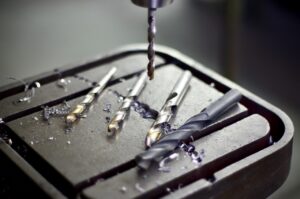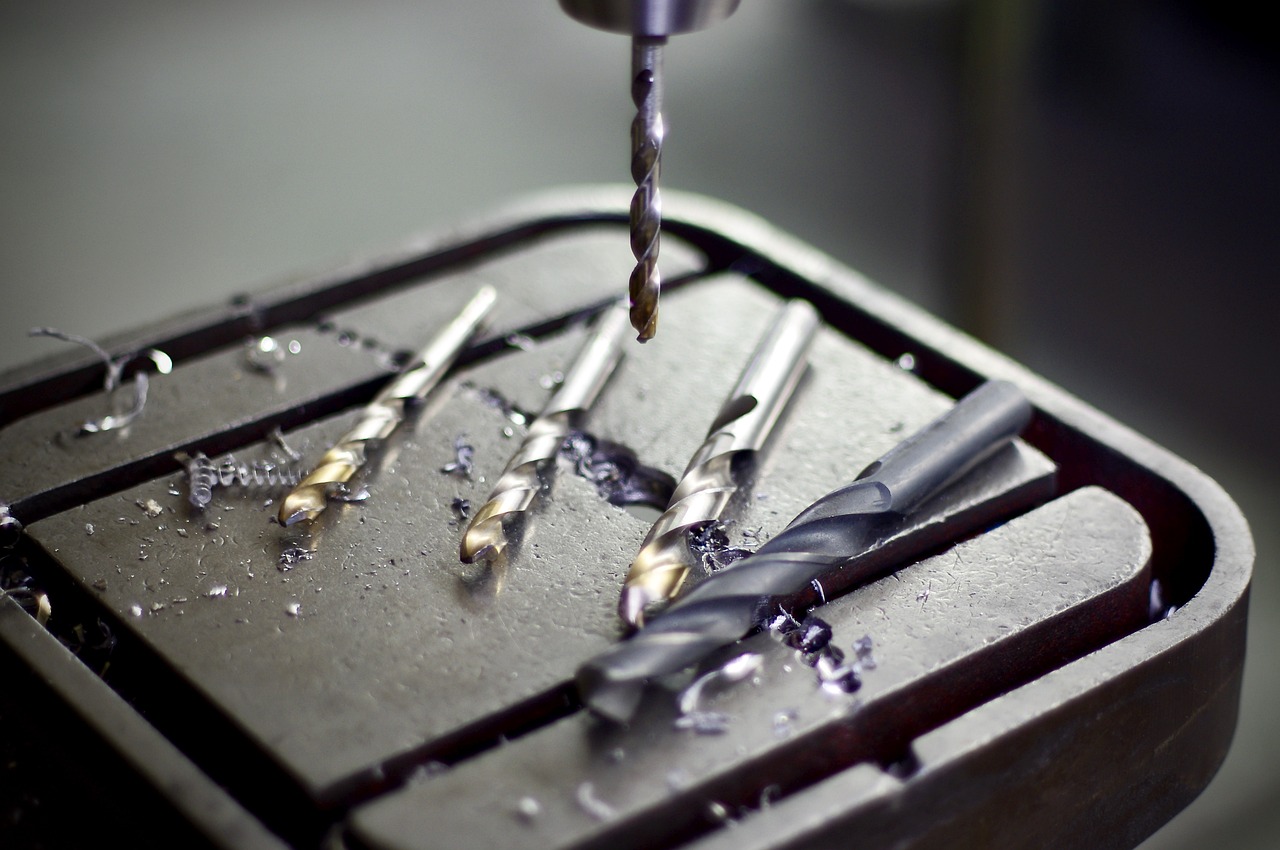Do I really need a drill press for Woodworking and Fine Woodworking?
If you’re someone who enjoys DIY projects or frequently works with wood, you might have wondered whether investing in a drill press is worth it. After all, wouldn’t a regular drill suffice? In this article, we’ll explore the various advantages of owning a drill press and how it can enhance your projects. From precision drilling to increased accuracy and efficiency, you’ll soon discover why a drill press might just be the perfect addition to your workshop. So, put on your safety goggles and let’s find out if a drill press is really necessary for your next DIY endeavor.

What is a drill press?
A drill press, also known as a drilling machine or bench drill, is a type of power tool that is designed to drill precise holes in a variety of materials such as wood, metal, and plastic. It consists of a base, a column, a drill head, and a worktable that can be adjusted for height and angle. The drill press is operated by a motor, and the drill bit is held in a chuck that can be raised and lowered by the user.
Definition
A drill press is a stationary power tool that uses a rotating drill bit to create holes in various materials. It is a versatile tool that offers accuracy, precision, and safety compared to handheld drills.
Function
The primary function of a drill press is to drill holes, but it can also perform other tasks such as sanding, polishing, and even mortising with the use of specialized attachments. The drill bit is driven into the workpiece by the rotating motion of the drill head, which is powered by the motor. The speed and depth of the drilling can be adjusted to meet the specific requirements of the project.
Features
Drill presses come with a variety of features that enhance their functionality and ease of use. Some common features include adjustable speed settings, depth stops, laser guides for precise drilling, workpiece clamps to secure the material, and built-in lighting for improved visibility. Additionally, many drill presses can be tilted or swiveled to allow for angled drilling.
Advantages of a drill press
A drill press offers several advantages over handheld drills, making it a valuable tool for both professional craftsmen and DIY enthusiasts.
Accuracy and Precision
One of the most significant advantages of using a drill press is the accuracy and precision it provides. The drill press allows you to drill perfectly straight and consistent holes, ensuring that your projects are neat and professional-looking. The adjustable depth stops also enable you to control the drilling depth with accuracy, making it ideal for tasks that require precise hole depths.
Versatility
While the primary function of a drill press is drilling, it can also be used for various other tasks. With the right attachments, you can transform your drill press into a sanding machine, a drum sander, or even a mortising machine. This versatility makes it a versatile tool that can handle a wide range of projects.
Safety
Safety is crucial when working with power tools, and a drill press offers several safety features. The stationary design of the drill press reduces the risk of accidents caused by the tool slipping or losing control. Additionally, most drill presses come with built-in safety features such as a safety switch, a transparent safety guard, and a depth stop that prevents drilling beyond a certain point.
Efficiency
Drill presses are designed to improve efficiency and productivity. The motorized operation allows for effortless drilling, reducing fatigue and increasing your overall efficiency. The adjustable speed settings also enable you to match the drilling speed to the specific material you are working with, ensuring optimal results.
Consistency
Consistency is essential, especially when working on projects that require multiple holes of the same size and depth. A drill press allows you to achieve consistent results every time, ensuring that your workpieces fit together seamlessly. This consistency is particularly beneficial for tasks such as doweling and joinery.
Types of drill presses
There are several types of drill presses available, each designed to cater to specific needs and applications.
Benchtop drill press
Benchtop drill presses are compact and lightweight, making them suitable for smaller workshops or for those who need a portable option. They are mounted on a workbench or tabletop and offer the same functionality as larger drill presses. While they may have slightly less power and capacity, benchtop drill presses are an excellent choice for DIY enthusiasts or hobbyists.
Floor-standing drill press
Floor-standing drill presses are larger and more powerful than benchtop models. They offer superior stability and are designed for heavy-duty applications. These drill presses are a popular choice for professional woodworkers or metalworkers who require a robust and reliable tool for their workshop.
Magnetic drill press
Magnetic drill presses, also known as mag drills, are specifically designed for drilling holes in metal. They use a powerful magnet to secure the drill press to the workpiece, eliminating the need for clamping or securing the material. Magnetic drill presses are commonly used in industrial settings or for construction applications.

Appropriate applications for a drill press
A drill press is a versatile tool that can be used for various applications and projects.
Woodworking
Woodworkers often rely on drill presses for tasks such as drilling dowel holes, creating mortises, and installing hinges. The precision and accuracy of a drill press are especially beneficial when working with wood, ensuring that the holes are straight and consistent.
Metalworking
Drill presses are commonly used in metalworking for tasks such as drilling holes in metal sheets, tapping threads, and creating precision holes for fasteners. The power and stability of a drill press make it an ideal tool for working with metal.
Jewelry making
Drill presses are widely used in jewelry making for drilling holes in beads, stones, and other small components. The ability to control the drilling speed and depth is crucial in this delicate craft, and a drill press offers the necessary precision.
Circuit board drilling
For electronics enthusiasts or professionals, a drill press can be useful for drilling holes in circuit boards. The accuracy and control provided by a drill press ensure that the holes are correctly positioned and do not damage the delicate board.
Construction
In construction applications, drill presses can be used for tasks such as drilling holes for anchors, installing electrical boxes, or creating holes for plumbing pipes. The power and precision of a drill press help ensure that the holes are properly aligned and sized.
Considerations before purchasing a drill press
Before purchasing a drill press, there are several factors that you need to consider to ensure that you make the right choice for your needs.
Frequency of use
Consider how often you will be using the drill press. If you are a professional who will be using it regularly, investing in a higher-quality, more durable drill press may be the best option. However, if you are a hobbyist or occasional user, a more affordable model may suffice.
Available space
Evaluate the available space in your workshop or garage. The size and footprint of the drill press will determine whether it will fit comfortably in your workspace. For smaller workshops, a benchtop model may be a more practical choice.
Budget
Set a budget for your drill press purchase. Drill presses come in a wide range of prices, and determining how much you are willing to spend will help narrow down your options. Consider the long-term investment value and quality of the drill press when determining your budget.
Required features
Identify the specific features that you require for your projects. Consider factors such as adjustable speed settings, depth stops, and workpiece clamps. Determine what features are essential for your specific applications.
Power and speed options
Consider the power and speed options of the drill press. Different materials require different drilling speeds, and having adjustable speed settings can greatly enhance your versatility. Determine the power requirements based on the materials you will be drilling and the depth capacity you need.
Alternatives to a drill press
While a drill press offers several advantages, there are alternatives available for those who may not have the budget or space for a dedicated drill press.
Handheld drills
Handheld drills are the most common alternative to a drill press. They are portable and versatile, allowing you to drill holes in various materials. However, handheld drills do not offer the same level of precision and accuracy as a drill press.
Drill guides
Drill guides are accessories that can be attached to handheld drills to improve accuracy. These guides provide a stable base and serve as a guiding mechanism to ensure straight and consistent holes. While drill guides can enhance accuracy, they do not offer the same level of stability as a drill press.
Drill stands
Drill stands are similar to drill guides but offer a more stable and versatile setup. They consist of a base, column, and adjustable worktable that can be used with a handheld drill. Drill stands provide a more secure drilling experience and can be a cost-effective alternative to a drill press.
How to choose the right drill press
Choosing the right drill press for your needs requires careful consideration of several factors.
Size and capacity
Consider the size and capacity of the drill press. Evaluate the maximum drill bit size and the depth capacity, ensuring that it meets the requirements of your projects. If you anticipate working with larger workpieces, opt for a drill press with a larger table and throat depth.
Motor power
The motor power determines the drilling capabilities of the drill press. Higher horsepower motors are capable of drilling larger holes and can handle more demanding applications. Consider the materials you will be working with and choose a drill press with sufficient motor power.
Speed settings
Adjustable speed settings allow you to match the drilling speed to the material you are working with. Different materials require different speeds for optimal results. Look for a drill press with a wide range of speed options to enhance your versatility.
Chuck type
The chuck is the mechanism that holds the drill bit in place. Most drill presses come with either a keyed chuck or a keyless chuck. Keyed chucks require a chuck key to tighten or loosen the drill bit, while keyless chucks can be tightened by hand. Consider your preference and the convenience of each option.
Table and workpiece support
Evaluate the table and workpiece support of the drill press. Look for features such as adjustable tables, fences, and workpiece clamps, which can greatly enhance your ability to secure and position the material. A sturdy and stable table is essential for accurate drilling.
Additional features
Consider any additional features that may be important to you. This could include features such as a built-in light for improved visibility, laser guides for precise drilling, or a digital depth display. Choose a drill press that offers the features that are most beneficial to your specific projects.
Drill press maintenance and safety tips
Proper maintenance and adherence to safety guidelines are essential for maintaining the longevity of your drill press and ensuring your safety while using it.
Regular cleaning and lubrication
Regularly clean your drill press to remove dust, debris, and built-up dirt. This will help prevent damage to the motor and other components. Lubricate the moving parts, such as the quill and column, according to the manufacturer’s instructions to keep them functioning smoothly.
Inspecting and replacing parts
Regularly inspect your drill press for any signs of wear or damage. Check the belts, pulleys, chuck, and other components for any signs of wear or misalignment. Replace any damaged or worn parts to ensure safe and reliable operation.
Proper usage and safety precautions
Follow the manufacturer’s instructions for the proper usage and operation of your drill press. Always wear safety glasses or goggles to protect your eyes from flying debris. Ensure that the workpiece is properly secured and clamped to prevent movement while drilling. Avoid wearing loose clothing or jewelry that could get caught in the drill press.
Wearing protective gear
In addition to eye protection, consider wearing other protective gear such as gloves and a dust mask, especially when working with certain materials or when performing tasks that generate a lot of dust or debris.
Securing workpieces
Always secure your workpiece properly before drilling. This can be done using clamps, vises, or other appropriate methods. Securely holding the workpiece will prevent it from moving or spinning, reducing the risk of accidents.
Popular drill press brands
There are several reputable drill press brands known for their quality and performance. Some popular brands include:
DEWALT
DEWALT is a well-known and trusted brand in the power tool industry. They offer a variety of drill presses suitable for both professionals and DIY enthusiasts. DEWALT drill presses are known for their durability, precision, and innovative features.
Jet
Jet is another reputable brand that specializes in woodworking and metalworking machinery. They offer a range of drill presses that are known for their solid construction, reliability, and performance. Jet drill presses are designed to withstand heavy use and deliver consistent results.
WEN
WEN is a brand that offers affordable drill presses without compromising on quality. Their drill presses are suitable for hobbyists and occasional users who require a reliable and versatile tool. WEN drill presses are known for their ease of use and value for money.
SKIL
SKIL has been manufacturing power tools for over 90 years, and their drill presses are known for their quality and performance. SKIL offers a range of drill presses that cater to various needs and budgets. Their drill presses are designed with user-friendly features and are suitable for both woodworking and metalworking applications.
Delta
Delta is a well-established brand that has been producing high-quality tools for over 100 years. Their drill presses are known for their precision, reliability, and user-friendly features. Delta offers a range of models that cater to different needs and budgets.
Conclusion
When considering whether you really need a drill press, it is important to evaluate your specific needs and the nature of your projects. A drill press offers numerous advantages such as accuracy, versatility, safety, efficiency, and consistency. It is a valuable tool for woodworking, metalworking, jewelry making, circuit board drilling, and construction applications.
Before purchasing a drill press, consider factors such as the frequency of use, available space, budget, required features, and power and speed options. If a drill press is not feasible for your situation, there are alternatives available such as handheld drills, drill guides, and drill stands.
When selecting a drill press, consider factors such as size and capacity, motor power, speed settings, chuck type, table and workpiece support, and additional features. Regular maintenance and adherence to safety guidelines are crucial for keeping your drill press in good condition and ensuring your safety.
Consider reputable drill press brands such as DEWALT, Jet, WEN, SKIL, and Delta, which offer reliable and high-quality options.
In conclusion, evaluating your specific needs, weighing the pros and cons, and choosing the right tool for the job will help you determine whether a drill press is a worthwhile investment for you.

